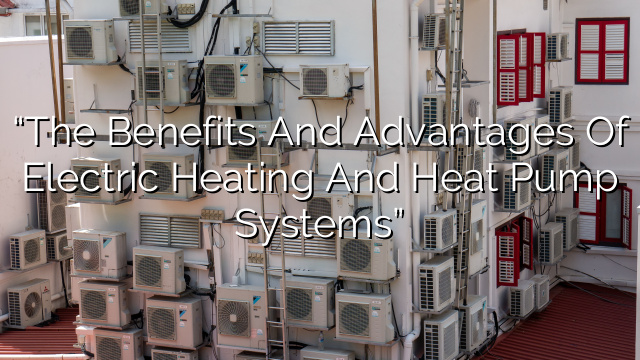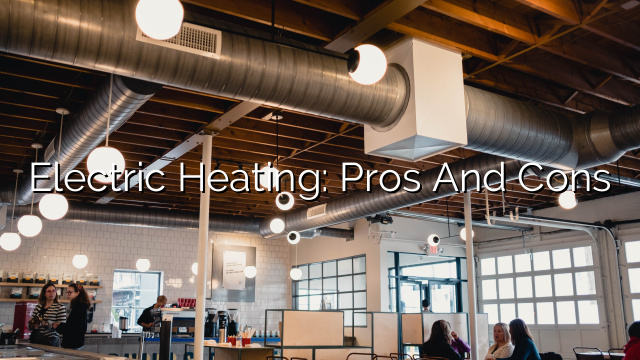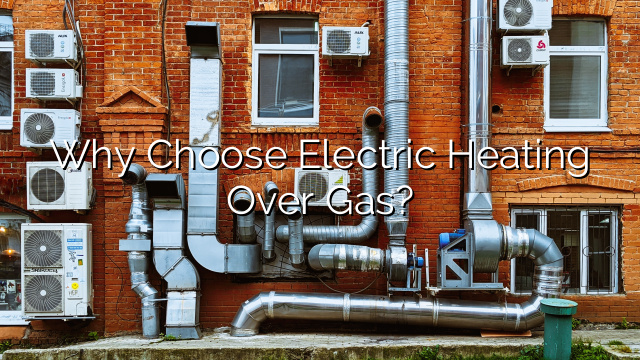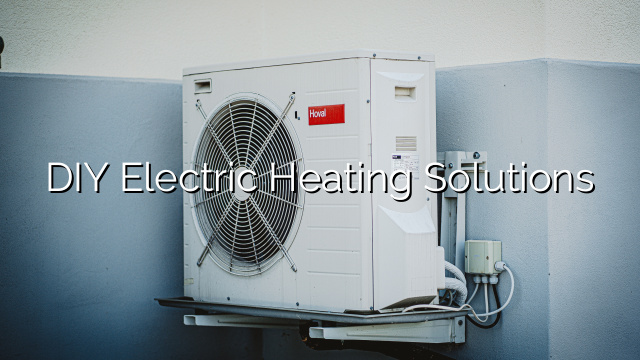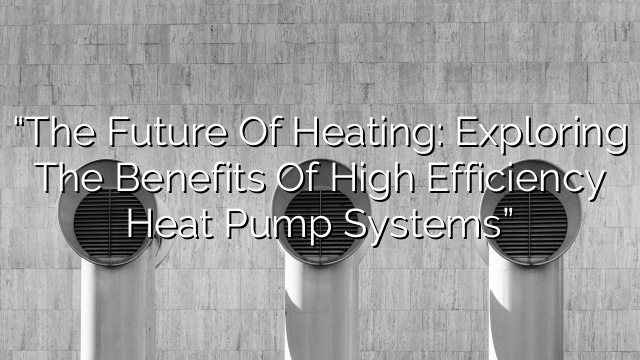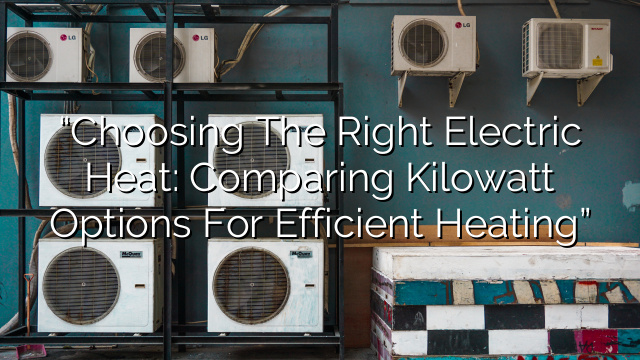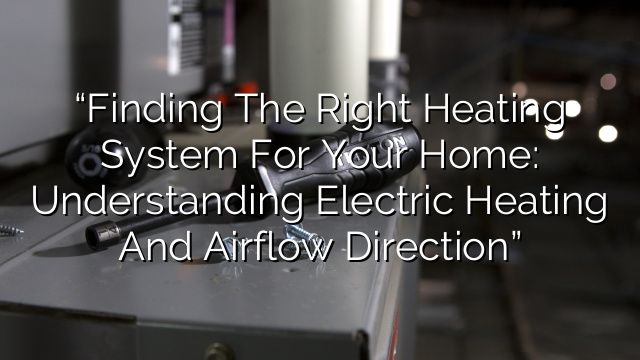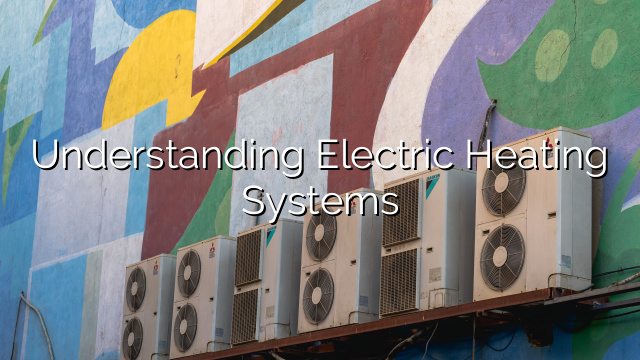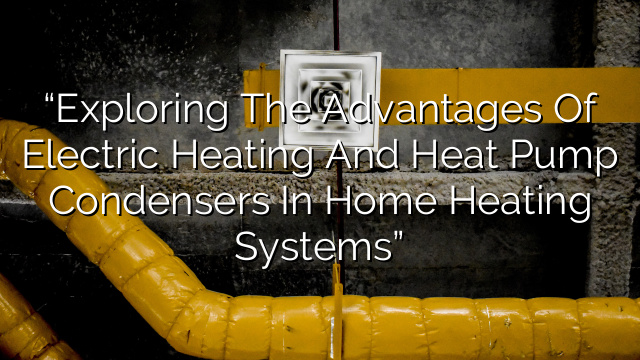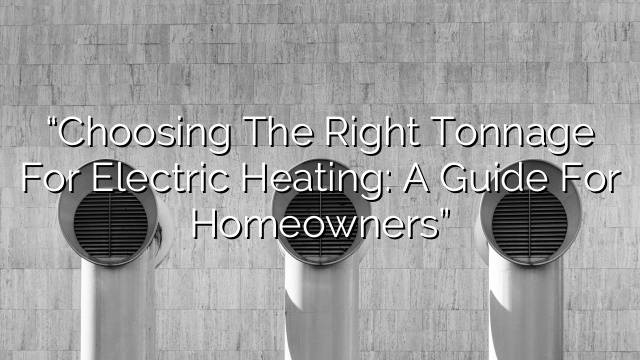Introduction
Heating is an essential component of any home or building, providing warmth and comfort during the colder months. When it comes to heating options, electric heating and heat pump systems have become increasingly popular choices. In this article, we will explore the benefits and advantages of electric heating and heat pump systems, highlighting their energy efficiency, cost-effectiveness, and environmental friendliness.
Energy Efficiency
One of the significant advantages of electric heating and heat pump systems is their energy efficiency. Electric heating systems, such as electric baseboards or radiant floor heating, convert nearly all the energy they consume into heat, making them highly efficient. This means that you can heat your home without wasting energy and, consequently, saving on energy bills.
Heat pump systems, on the other hand, work by transferring heat from one place to another. By utilizing the heat that already exists in the environment, heat pumps are significantly more energy-efficient than other heating systems. In fact, for every unit of electricity they consume, heat pumps can produce up to three units of heat, making them an excellent option for eco-conscious individuals looking to reduce their carbon footprint.
Cost-Effectiveness
Not only are electric heating and heat pump systems energy-efficient, but they are also cost-effective in the long run. Although electric heating systems may have higher upfront costs compared to other heating options, such as gas furnaces, they often require less maintenance and have a longer lifespan. This means that you will save money on repairs and replacement costs over time.
Heat pump systems, while they may also have a higher initial investment, can provide substantial savings on heating and cooling costs. By utilizing the same system for both heating and cooling, heat pump owners can reduce their energy bills significantly. Additionally, heat pumps tend to have longer lifespans than traditional HVAC systems, further adding to their cost-effectiveness.
Environmental Friendliness
In an era where sustainability and environmental conservation are paramount, electric heating and heat pump systems shine as eco-friendly alternatives. Electric heating systems produce zero emissions during operation, making them a clean heating option. Heat pump systems, by utilizing the ambient heat in the environment, also generate fewer greenhouse gases compared to traditional heating methods.
Furthermore, heat pump systems can act as air conditioners in the summer, providing both heating and cooling capabilities with a single system. This eliminates the need for separate heating and cooling units, reducing overall energy consumption and greenhouse gas emissions.
Comfort and Convenience
Not only are electric heating and heat pump systems energy-efficient and environmentally friendly, but they also offer enhanced comfort and convenience. Electric heating systems offer precise temperature control, allowing you to maintain a comfortable and consistent temperature throughout your home with ease. Additionally, electric heating systems do not require a chimney or vents, giving you more flexibility in terms of installation options.
Heat pump systems provide both heating and cooling capabilities, ensuring that your home remains comfortable all year round. With the ability to extract heat from the environment, heat pumps can provide warmth even in colder climates. In addition, heat pump systems are typically quieter than traditional HVAC systems, creating a more peaceful and enjoyable living environment.
FAQs
Q: Are electric heating systems expensive to install?
A: While electric heating systems may have higher upfront costs compared to other heating options, such as gas furnaces, they often require less maintenance and have a longer lifespan. This means that you will save money on repairs and replacement costs over time. Additionally, some electric heating systems, like electric baseboards, are relatively easy to install, potentially reducing installation costs.
Q: Are heat pumps suitable for colder climates?
A: Yes, heat pumps are suitable for colder climates. While traditional air-source heat pumps may struggle to extract sufficient heat from extremely cold air, there are also ground-source heat pumps available, which utilize the relatively stable temperature underground to produce heat. Ground-source heat pumps can efficiently heat your home even in colder climates.
Q: Are heat pumps noisy?
A: No, heat pumps are typically quieter than traditional HVAC systems. The outdoor unit of a heat pump may produce some noise during operation, but modern heat pumps are designed with noise reduction features to provide a quiet and peaceful environment.
Q: How long do electric heating and heat pump systems last?
A: Electric heating systems, such as electric baseboards or radiant floor heating, can last for up to 20 years or more with proper maintenance. Heat pump systems, on the other hand, typically have a lifespan of 15 to 20 years, depending on usage and regular maintenance.
Conclusion
Electric heating and heat pump systems provide numerous benefits and advantages, including energy efficiency, cost-effectiveness, environmental friendliness, and enhanced comfort and convenience. With their ability to heat your home efficiently, save on energy bills, reduce carbon footprint, and deliver precise temperature control, electric heating and heat pump systems are excellent choices for modern homes. By opting for electric heating or heat pump systems, you can enjoy reliable and sustainable heating solutions while contributing to a greener and more sustainable future.

